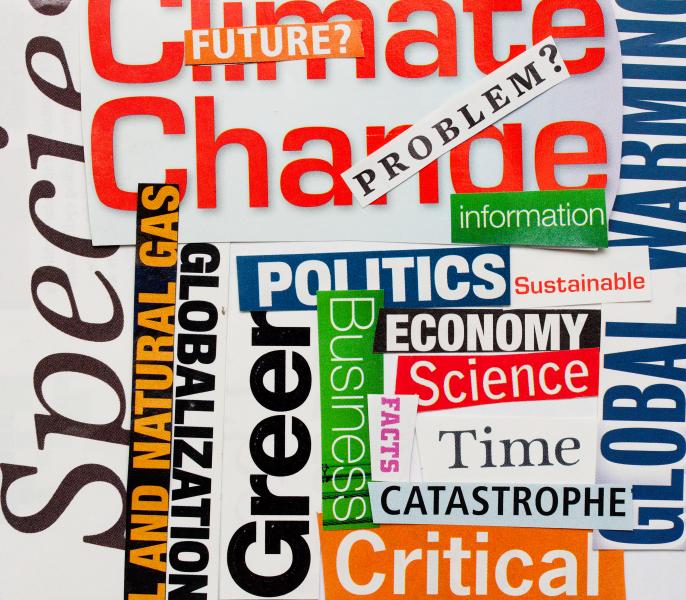
If Sir David Attenborough is right and saving our planet is now a communications challenge, you now have one of the most important roles to play in tackling the climate crisis.
I'm acutely aware from my own personal experience how challenging communicating climate change can be, and there are numerous social science reports to back that up. We know that whilst people are aware of climate change and want to help, they’re not entirely sure of the issues and what they can do. It is only through coming together and telling the same stories and messages, albeit in different forms, that we can start to make a difference. I'm hoping that I can persuade you to rise to the communications challenge. I want to help you feel confident in talking about this important topic with your audiences. I also want you to feel empowered to influence and advise your senior leaders, colleagues and clients.
The first challenge to consider is that climate science is full of uncertainties. This can be a minefield when it comes to communication. How do we best communicate uncertainties? Uncertainties are everywhere. We make financial decisions and receive medical diagnoses that are often uncertain, and that is widely accepted. But when it comes to climate science, uncertainty is sometimes used to discredit or introduce doubt in the science, we have seen that with the Covid pandemic. However, what we can do is to communicate what we know and where we have high confidence in what the science is telling us. It is also helpful to talk about risk rather than uncertainty, as people are more familiar with dealing with risks, and it helps to give them some ownership over their actions.
The next challenge is that when communicating climate change, one size does not fit all. It is important to recognise people who come from different backgrounds, have different levels of knowledge and have different experiences of climate issues, they will also have their own personal challenges and concerns. Ensure your message resonates with your audience. Bring the focus to them, their location and within their lifetime. Climate change is not something happening elsewhere in the world, or in the decades to come, it knows no boundaries and it won’t wait around. Think about who is receiving your message. How will climate change impact their lives? What are the benefits to them to become engaged in the topic? How can we make it all doable? Connect with what matters to your audience and inspire them with stories of positive action.
Finally, we need to consider how best to communicate – using words or images? The short answer is probably both. Ultimately, we are trying to paint a picture and tell a story. So, it's best to avoid using lists of numbers, technical graphs and statements of probability. Instead, find ways of interpreting and translating this information to be more engaging. There are plenty of excellent resources out there that can help, such as the #ShowYourStripes and Pixel Movers and Makers.
Climate change communication is something we are passionate about at the Royal Meteorological Society. We actively support climate communication through our own online and social content, publications portfolio, regular media interviews and fact-checking, and bespoke training for broadcasters, journalists and editors. We're keen to keep everyone up to date with the latest science and how best to communicate climate change. And it's extremely rewarding when you see high quality output from expert communicators connecting with their audience and communicating with confidence on this topic.
So, are you up for the challenge?
If you would like to find out more about the important work of the Royal Meteorological Society, speak to one of our experts, or are interested in our training please visit rmets.org or comms@rmets.org
